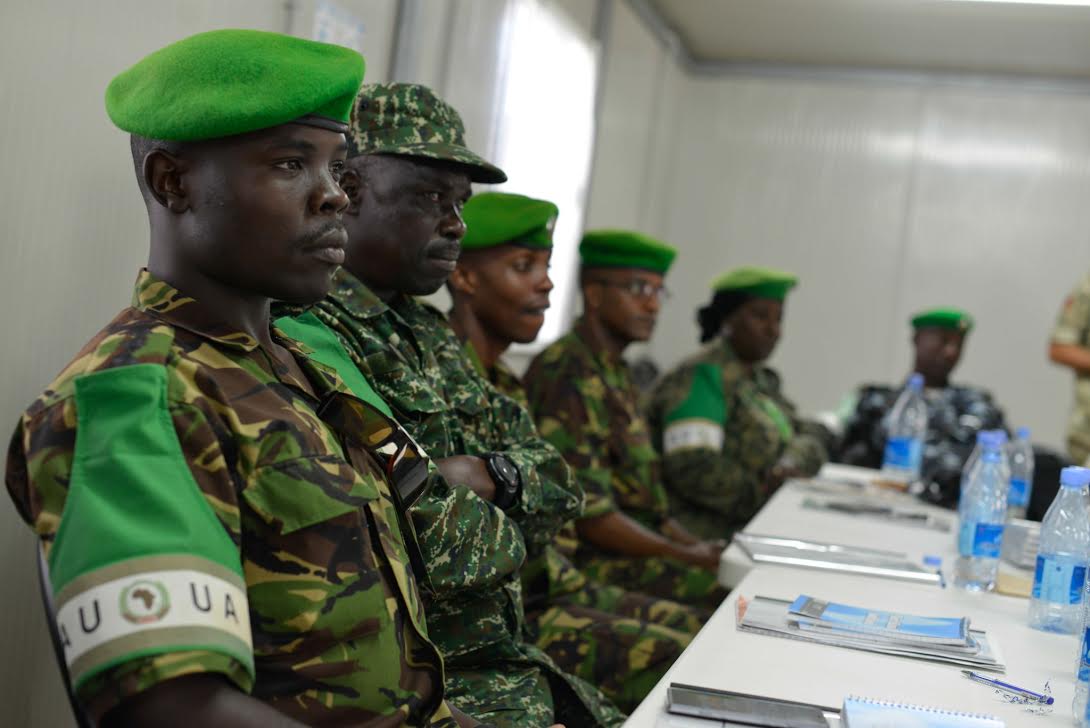AMISOM seeks 9000 more troops as manpower, logistical problems persist

The African Union Mission in Somalia (AMISOM) has asked member states for at least 9 000 more troops to enhance peacekeeping and stabilisation operations as well as intensifying the fight against the Islamist Al Shabaab insurgency.
Addressing delegates to a recent meeting held in Mogadishu, the Somalia Special Representative of the Chairperson of the African Union (AU) Commission Ambassador Francisco Madeira said the viability of AMISOM was under threat from lack of financial and logistic support as well as the withdrawal of up to 10 000 troops by the end of 2017.
Madeira said presently, the under-funded AU force faced critical shortages of both military and civilian staff while working under pressure to conclude the training, equipment and deployment of a 20 000-member strong Somali National Army (SNA) before it starts a phased withdrawal from the country next year.
He said due to the shortage of funds and logistical support from international partners, AMISOM has only trained 10 900 SNA soldiers to date. However, they still lack basic equipment, such as guns, camouflage gear and operational vehicles.
“We are training the Somali (National Army), but a soldier only becomes a soldier when he is equipped with a gun to fight. There is fear in the international community that Somalia is full of guns, hence the hesitation.
“But we need to have at least 20 000 SNA soldiers to ensure the country’s security equipped ahead of the AMISOM exit. That is exactly where the problem is,” Madeira said.
Further, Madeira accused some troop contributing member states to the AMISOM force of using their security contribution in Somalia as a bargaining chip for making unreasonable demands from the mission’s partner and funding nations.
He cited the Kenyan withdrawal of 1 000 troops from South Sudan after a fall-out with the United Nations which accused Lieutenant Johnson Ondieki, the peacekeeping army commander from the Kenyan Defence Force (KDF), of failing to protect civilians among other criticisms of his leadership.
In June last year, the precarious financial state of the AMISOM force was worsened by a 20 per cent cut in critical European Union (EU) funding which pays troop salaries. The cut came at a time when member states such as Kenya, Uganda and Burundi were complaining of long delays in the disbursement of salaries for AMISOM soldiers.
Early this month, Burundi warned it would soon take legal action to recover the out-standing salaries of its troops in Somalia.
Since October last year, Ethiopia has withdrawn 4 000 non-AMISOM troops who provided critical operational support to the mission, where it has another 4 000 troops. The defence ministry cited the high cost of maintaining the troops in Somalia against the background of a worsening economic crisis at home.
Recent media reports from Mogadishu claimed Al Shabaab had regained control of most towns abandoned by the ENDF since October last year in southern and central Somalia.
The Ugandan People’s Defence Force, which has a partial salary backlog of eight months, has also complained repeatedly about the high cost of sustaining the soldiers on behalf of the AU. Uganda has also announced plans to withdraw 6 000 troops from the AMISOM mission by the end of 2017.
Defence Web